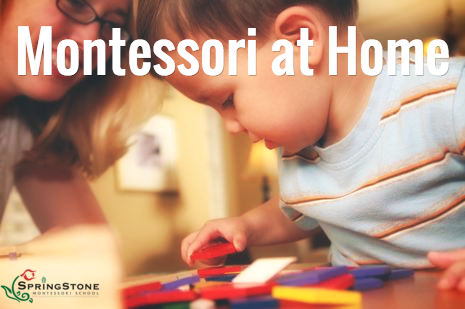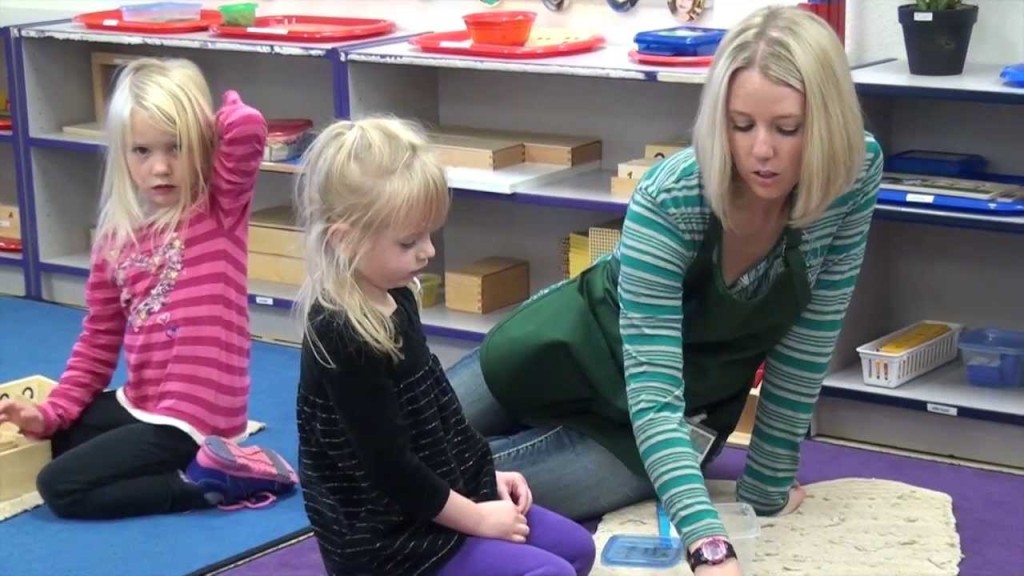Student Mentors in the Mixed-Age Montessori Classroom
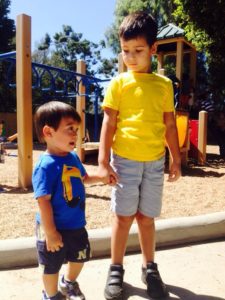 Why do we strive to develop Student Mentors in the Montessori Environment?
Why do we strive to develop Student Mentors in the Montessori Environment?
The Montessori method and learning environment for preschool (ages 3-5) is built around the concept of a three-year, multi-age classroom. Why do we believe in this concept, and what are we able to provide for our students when we refer to student mentors?
The purpose of the multi-age classroom is to encourage older children to serve as leaders, both academically and socially. Younger children learn more readily from their peers through imitative learning and peer-to-peer teaching. And we all know, that children are more likely to listen to their peers for instruction and guidance than they may do to adults in their lives. And as Montessorians, we love to explore and build on this tendency at this very important developmental stage of our students.
Peer teaching often develops spontaneously, after all, who hasn’t watched a group of young children play ‘school’, ‘house’ or ‘family’ together? In the Montessori environment, we encourage our teachers to take advantage of this natural tendency and actively develop classroom mentors.
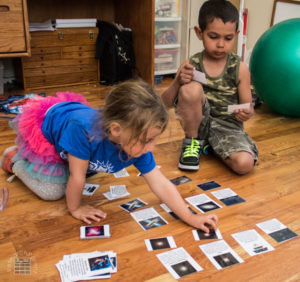 Student Mentors – How does it work?
Student Mentors – How does it work?
In a class of very young children, we guide the more mature children to model proper classroom behavior. We gather two or three of the older children and let them know that we have observed some of the younger children, and identified a need for their support in learning about the classroom. We encourage the older children to engage their young peers in lessons that they had when they were younger. They can even gather a small group of younger children for a demonstration to help settle them.
Older students also benefit from being a role model. Sometimes, a little added responsibility can help an older student mature even further. When older students lose focus, we have found that one of the best ways to positively reengage them is to promote their natural leadership qualities. When they learn that a younger student is relying on them to guide them along the way, we truly see some magic in that we can watch both students blossom under their newly developed relationship.
Of course, as the guide for all our students, we need to model behavior we expect from our student mentors. That is why it is so important to have on-going conversations with the older students about their responsibilities and our e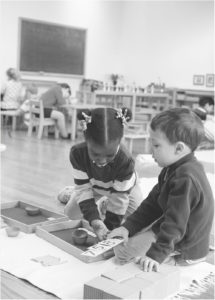 xpectations. They will soon realize that not only are they helping us and their younger peers, they are helping the whole class. And be ready to become a witness to our student mentor striving to work even harder to succeed.
xpectations. They will soon realize that not only are they helping us and their younger peers, they are helping the whole class. And be ready to become a witness to our student mentor striving to work even harder to succeed.
Our Student Mentors – Leadership skills and sense of family developed
Developing student mentors is more than simply asking an older child to help a younger child. It is all about mentoring a true leader and showing them the ‘ropes’ of how to lead and help others. When we take the time to cultivate leaders in our Montessori environment, we see that it is another critical piece of the carefully prepared environment, and the overall success of all our students.
We always refer to our Montessori classroom family, and it truly is one of a kind, and our student mentorship approach is a big part of what brings our students together, creating a sense of belonging in everyone.

